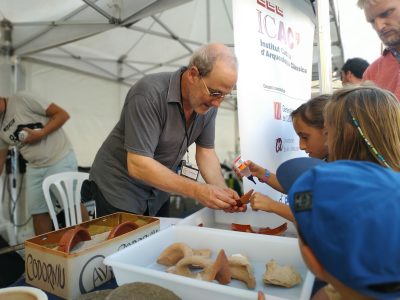
Corsini square in Tarragona will host the central event of the program, with nearly 60 scientific workshops taking place on Friday, the 29th, and Saturday, the 30th.
The European Researchers’ Night is expanding its range of activities. The central event, the scientific workshop fair, will take place for the first time in Tortosa as a preliminary activity, and due to the success of previous editions, it will be extended for two days in Corsini Square in Tarragona: Friday, the 29th (in the afternoon) and Saturday, the 30th (in the morning).
This initiative, which is coordinated and organized for the sixth consecutive year in the Tarragona region by the Communication and Science Outreach Unit of the Rovira i Virgili University (URV), has planned more proposals than ever this year: nearly 60 scientific workshops for families and over 30 informative talks for teenagers and adults.
The event involves the participation of over 300 researchers from the URV (Rovira i Virgili University) and the four CERCA research centers in the region: the Catalan Institute of Classical Archaeology (ICAC), the Catalan Institute of Chemical Research (ICIQ), the Pere Virgili Health Research Institute (IISPV), and the Institute of Human Paleoecology and Social Evolution (IPHES). The initiative has received funding from the European Union.
The activities will also extend to the days before and after Tortosa, Tarragona, and Reus.
The European Researchers’ Night is a public scientific outreach event that takes place annually simultaneously in 300 cities across 30 countries on the continent. Since 2018, URV has organized this initiative in the Tarragona region, and it has been growing and establishing itself over these six years. The aim of the European Researchers’ Night is to bring research and its protagonists closer to audiences of all ages and to promote research and innovation in a clear and understandable language.
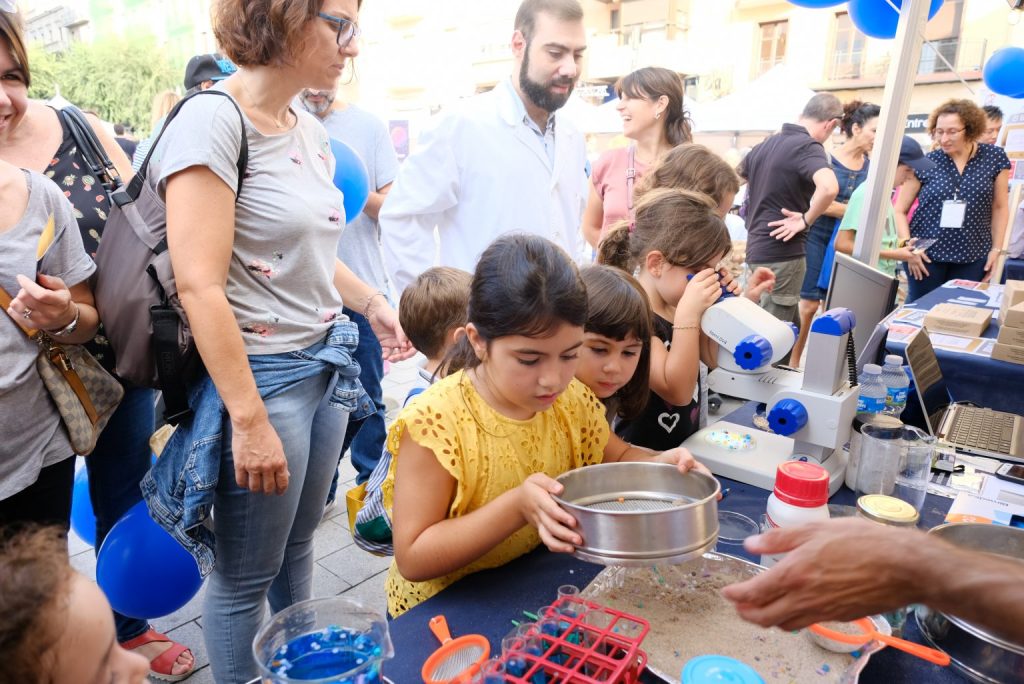
60 hands-on workshops!
The main innovations of this edition are related to the central event of the European Researchers’ Night: the science workshop fair for families. The high turnout in previous editions has led to this activity taking place over two days in Corsini Square in Tarragona: the evening of the 29th and the morning of the 30th of September.
Around 60 workshops will fill the square with highly experimental scientific activities tailored to a comprehensible language, aiming to bring science to the public in an understandable and playful manner and to ignite their scientific curiosity through experimentation. ICAC contributes to four of these workshops.
The Tarragona City Council, through the Europe Direct Tarragona office, is the main sponsor of the activity in Corsini Square, in collaboration with the Diputación de Tarragona. It has also received support from the Tarragona Central Market and the company Borges.
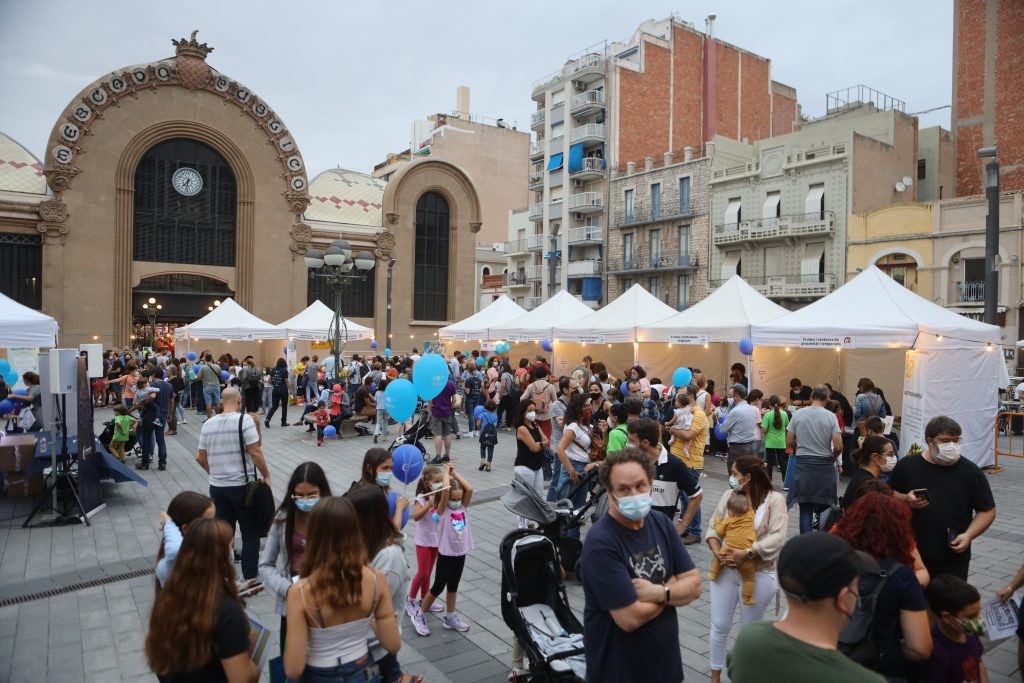
Four ICAC experimental workshops on archaeology
ICAC participates in the 2023 edition of the European Researchers’ Night with four experimental workshops that will bring us closer to the Roman world from the perspective of trade, food, craftsmanship, and numismatics. We look forward to seeing you there!
- Producir, comerciar y edificar: Imagina tu villa romana. With Toni Corrales and Maria Rueda, from the MIRMED research group.
Nos situamos en la Tarraco del siglo I d.C. M. Clodius Martialis es un magistrado de Tárraco que se dedica al comercio del vino desde hace poco tiempo. A medida que su negocio prospera, ha adquirido recientemente terrenos agrícolas en la zona del Ager Tarraconensis, donde desarrollará una gran producción vitivinícola. Con esta actividad, te pondrás en la piel de un comerciante y productor de vino, descubrirás cómo era su residencia y cómo, poco a poco, desarrolló su negocio. ¿Te apuntas a la aventura?
-
El mapa de los sabores romanos. With Theoni Baniou, Federica Riso, Darío Herranz and Alexandra Livarda, from the GIAP research group.
La ciudad de Tàrraco está buscando cocineros y cocineras con talento que se atrevan a preparar platos para tres comensales muy especiales: un patricio de Tàrraco, un trabajador de una alfarería y la diosa Isis. ¿Aceptas el reto? Con este taller aprenderás algunas recetas romanas y la variedad de los ingredientes que se utilizaban en esa época, además de la procedencia de todos estos alimentos y redes comerciales de la época. ¿Sabrías decir de dónde proviene la canela? ¿Y el pimiento? ¿O los dátiles? Descúbrelo en este taller.
- Un rompecabezas a la romana: ¡montamos un opus sectile! With Laura Galán, Jordi Oliver, Pablo Varona and Teresa Buey, from the ArPA-LIRA research group.
Con esta actividad aprenderás cuál era el proceso de fabricación de un pavimento en sectile. Era una técnica que se utilizaba en el mundo romano para decorar las estancias más importantes de sus edificios, por eso utilizaban diferentes tipos de mármol de toda la Mediterránea. Lujo, color, prestigio, simbolismo y técnica eran los ingredientes necesarios para fabricar este tipo de suelos. ¿Os animáis a participar?
-
Numismática y arqueología: dos campos simbióticos. With Òscar Caldés and Andreu Muñoz, from the MIRMED research group.
Divulgarás la labor arqueológica y numismática, desde la recuperación de las piezas durante la excavación hasta el estudio y la fotografía de las monedas. También buscarás piezas en “pequeñas excavaciones” y, una vez recuperadas, harás calcos de las piezas a lápiz sobre post-its.
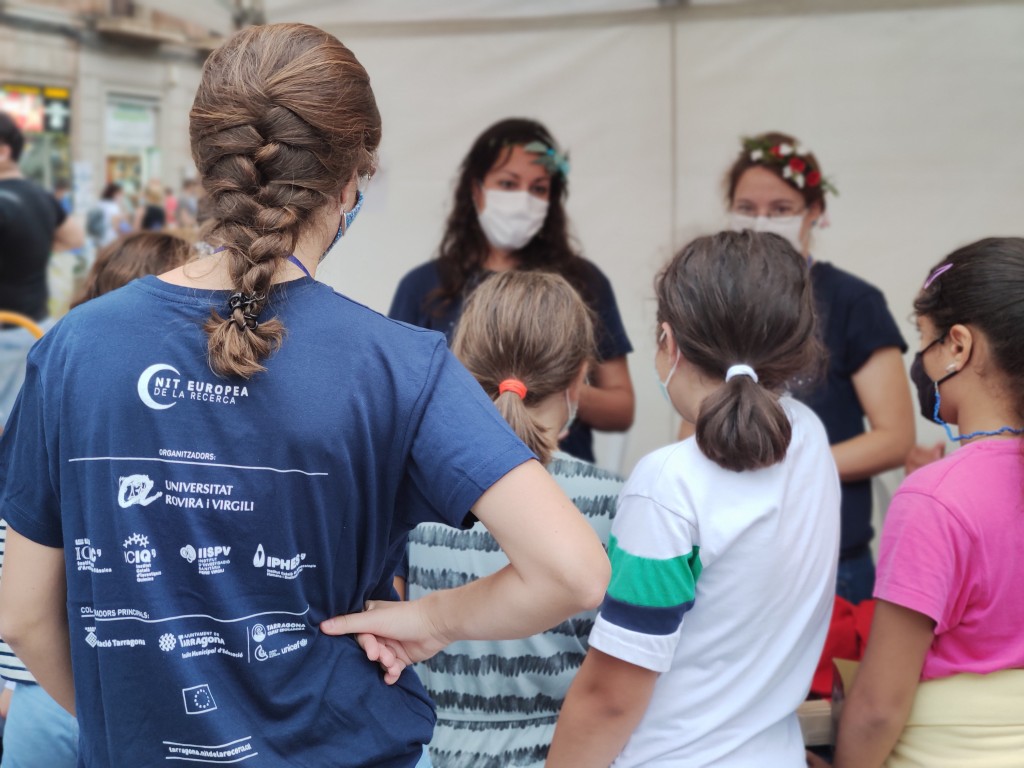
Informative talks and outreach workshops
To reach all kinds of audiences, activities have also been organized before and after the central event. Secondary schools in the region will receive visits from researchers from URV and research institutes who will conduct more than 20 informative talks and workshops during the week from September 25th to September 29th.
An informative talk has also been organized on September 26th in the auditorium of the Port Museum of Tarragona, where researchers Javier Sigró from the Climate Change Center (C3) at URV and Jaume Folch from the Department of Biochemistry and Biotechnology at the University will discuss the climatological consequences and human health implications of rising sea temperatures.
Finally, on the evening of Thursday, October 5th, the European Researchers’ Night will offer a session of short informative talks organized by IIPSV in collaboration with the University, where researchers from various fields will provide an overview of their research topics.
On Thursday, October 5th, at 6:00 PM, Diana Gorostidi, the coordinator of the ArPA-LIRA research group at ICAC and a professor at URV, will hold a short talk titled «De la letra y de la piedra. Diálogos con los romanos a pie de calle» at the public library Xavier Amorós in Reus.
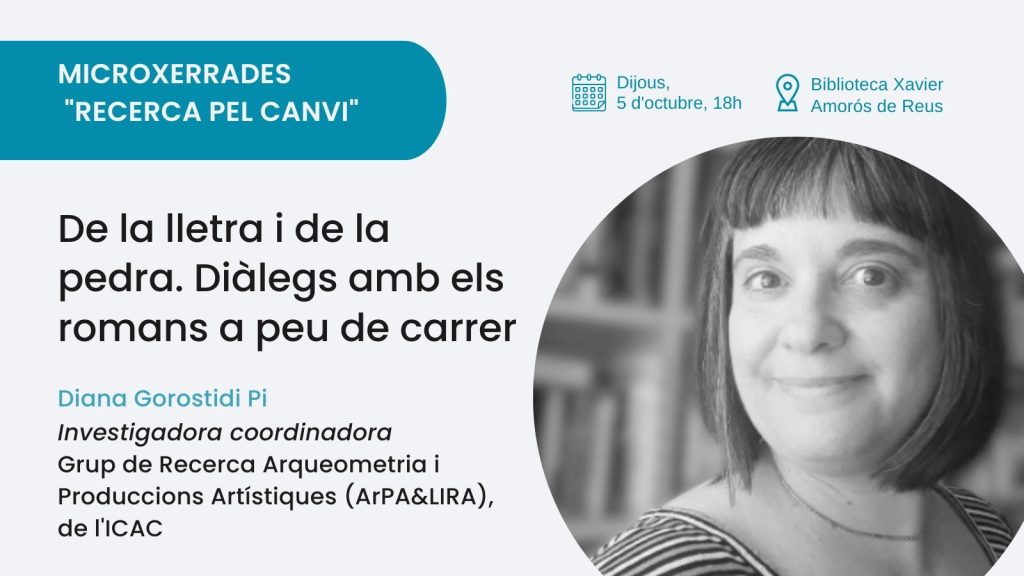
The European Researchers’ Night is made possible through co-funding from the Horizon Europe research and innovation program of the European Union, and it involves collaboration from a consortium coordinated by the University of Girona, which includes other Catalan universities and public institutions. In Tarragona, it is also sponsored by the Tarragona City Council through Europe Direct, the Tarragona Provincial Council, and the Port of Tarragona, with additional support from Mercats Tarragona and the company Borges. The workshop fair in Tortosa has received sponsorship from the Tarragona Provincial Council and the City Council of Tortosa.
You can find detailed information about all the activities on the website tarragona.nitdelarecerca.cat.





